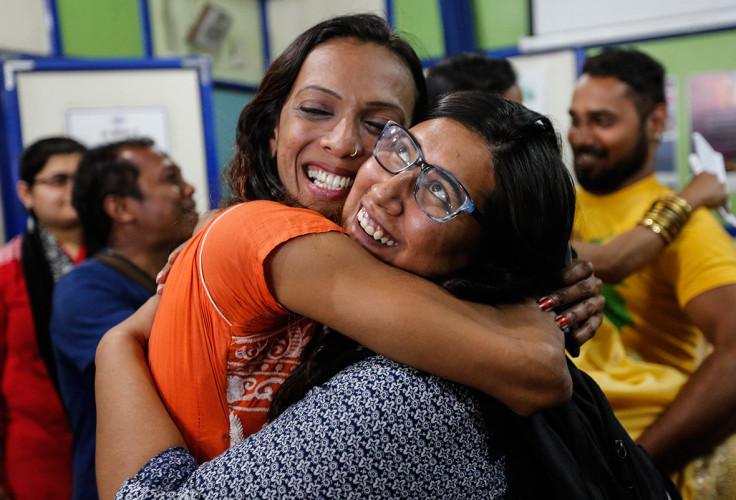Campaigners optimistic as Indian Supreme Court hears petition to decriminalise homosexuality

Five judges will now decide whether Section 377 of the Indian Penal Code, which describes homosexuality as an "unnatural offence", can be overturned.
The decision by the court on 2 February could see the reversal of a 2013 decision to reinstate the country's ban on homosexuality, which was lifted in 2009.
Pursued by gay rights activists and the NGO Naz Foundation, an HIV and AIDs charity based in India that fights for the decriminalisation and de-stigmatisation of LGBT people, the case has become a high-profile one, with some religious organisations favouring a ban on homosexuality remaining in place.
Dating back to 1860, Section 377 states: "Whoever voluntarily has carnal intercourse against the order of nature with any man, woman or animal, shall be punished with imprisonment for life or with imprisonment of either description for a term which may extend to ten years, and shall also be liable to fine."
The petitioners claim that the 2013 ruling is wrong as it is based on an old law, the Indian Express reported, with the petition today being referred to a five-judge bench and a listing to be as soon as possible.
On its website, Naz Foundation stated: "In 2001, Naz filed a Public Interest Litigation (PIL) to decriminalize sexual acts between consenting adults and put an end to the archaic law under which individuals were harassed and discriminated against based on their sexual orientation. Under Section 377, all homosexual acts are criminalized.
"This criminalization of homosexual conduct increases and legitimises social stigma and discrimination against LGBTQ people and acts as a barrier to HIV prevention programmes and healthcare services.
"The Delhi High Court ruled in favour of Naz India in 2009 and declared Section 377 an infringement on individual rights. This groundbreaking ruling was a great leap towards an accepting and discrimination-free society.
"However, in 2009-2010, many religious groups from all over India challenged the High Court verdict in the Supreme Court, but the government of India did not appeal.
"Finally, in December, 2013 the Supreme Court reinstated Section 377, and overturned the High Court judgment, thereby recriminalising thousands of homosexual men and transgender persons in India."
#NoGoingBack to #377 whatever 2nd Feb brings in. We have come a long way now. With no fear or guilt. Just pride!
— rituparna borah (@rituparnaborah) February 1, 2016
Ahead of the Supreme Court's recommendation on 2 February, gay rights activists in India approached the upcoming decision with optimism, stating there was "no going back" to the discriminatory legislation.
© Copyright IBTimes 2025. All rights reserved.






















